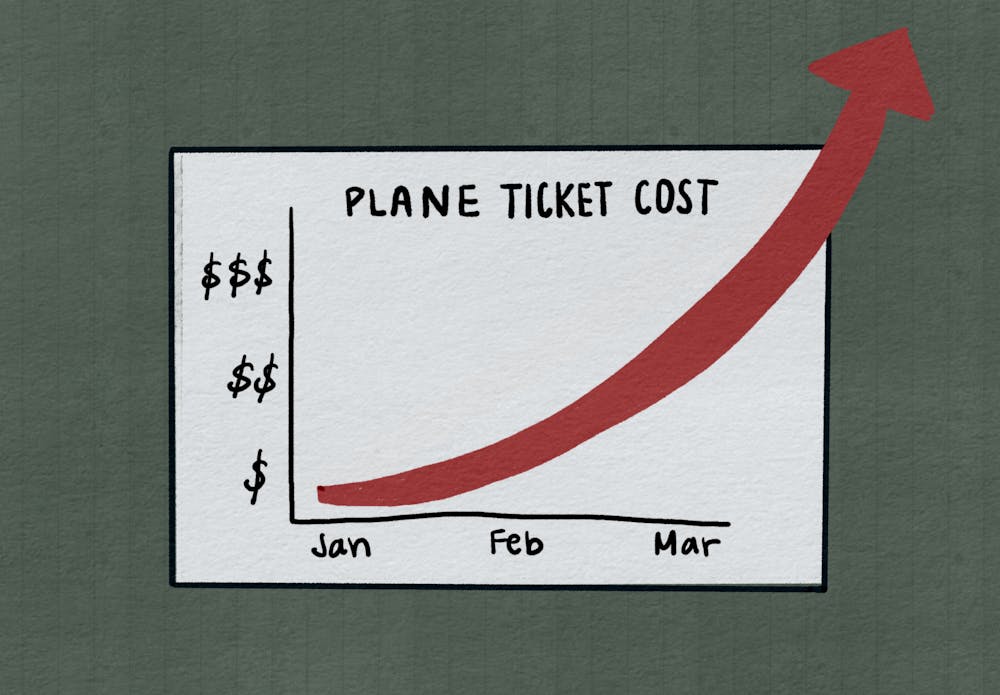In the 2021-2022 school year, the University ranked 21st in the nation for students studying abroad among doctoral-granting institutions of higher education. This is a ranking in which the University should undoubtedly take pride. Nevertheless, inaccessibility remains an issue. White students make up a disproportionately large percentage of the student population studying abroad — in 2022-23, 64 percent of University undergraduate students abroad were white despite making up only 52 percent of the undergraduate student population. The rankings are proof that the larger systems that the University has put in place are sound and even nationally prestigious, but the demographics remind us that these systems are not perfect. Thus, to advance the study abroad programs and partnerships, the International Studies Office must look at smaller details which inhibit growth and accessibility.
Study abroad programs have historically been inaccessible to students from diverse backgrounds. As recently as the 2016-2017 academic year, nationally, 71 percent of American students abroad were white despite the fact that white students make up only 57 percent of the college population. And while the University has had slightly more favorable representation abroad, it has not been exempt from these larger trends. Because of this persistent inequality in study abroad participation rates, many have studied underlying causes. The overwhelming consensus is that cost is the primary barrier to studying abroad.
Given that cost is such a prevalent barrier to equity in study abroad, universities have a responsibility to reduce costs wherever they can. And the University can do this by examining small structures. International travel, especially for students, will always be expensive. ISO cannot change that. However, examining smaller incidentals will allow ISO to diminish costs, or more general inaccessibility, without diminishing the quality of the programs. Let’s consider the example of summer study abroad application and decision deadlines.
This summer, ISO will offer 24 University-run programs to students in 15 countries. Most University programs will begin sometime between mid-May and early-June, but 70 percent of applications will not close until March, and 70 percent of decisions will not be released by ISO until mid-March or later. Taken in a vacuum, perhaps these dates would be acceptable. However, many students who are planning their summers are navigating a variety of deadlines. If they are not going to be studying abroad, many need to have an internship or job lined up, something which becomes exponentially more difficult with such absurdly late deadlines. In short, asking students to wait this long to have certainty about their summer plans is not only inconvenient, it actively preselects a certain group of affluent students.
Consider the price of plane tickets alone. Most experts recommend buying international plane tickets four to 10 months in advance. This means that international tickets for May or June should be bought, at the latest, in January. Any time after January, experts explain, ticket prices will be significantly inflated. For example, in January 2023, a flight from Washington D.C. to Casablanca for one of the two U.Va. in Morocco programs cost, on average, $896. The same trip, at the end of March 2023, cost $1,586. This is a 77 percent increase in price. This example epitomizes the potential danger of March application and decision deadlines for study abroad. For many students, this is not an issue of convenience, but rather one of exorbitant costs and accessibility.
Given that summer study abroad easily costs upwards of $8,000, the price differences of flights may seem insignificant. However, when taken in relation to the cost of the program, a difference of $700 can be almost 10 percent of program cost. This is, by no stretch of the imagination, insignificant. Moreover, the majority of University students who study abroad do so in the summer, a phenomenon which raises the stakes on summer program accessibility. Luckily, a change would be relatively straightforward. The application cycle for the summer must simply be moved into November or December, a change which would allow students to purchase tickets in January and have more clarity early about their summer plans.
And March application deadlines and decision dates for summer programs that the University runs are just the tip of the iceberg. There are many other smaller structures which ISO should be examining in an effort to improve overall accessibility. For example, the transfer credit process for non-University programs is wildly complicated, convoluted and decentralized. Moreover, Student Financial Services refuses to increase grants for the increased cost of study abroad, a refusal which signals an inability to understand the extensive holistic benefits of study abroad.
The summer program example is simply a reminder that small, mundane, seemingly insignificant structures have an impact on accessibility. When interviewed by UVA Today, Vice Provost for Global Affairs Steve Mull said, “We are … focused on making education abroad as affordable as possible for our students.” If this is true, ISO has a self-declared imperative and an institutional responsibility to be attentive to smaller details which, when ignored, can multiply to produce an ethos of inaccessibility. The devil is in the details, and future accessibility lies in being deeply conscientious of these details vis-à-vis study abroad.
Naima Sawaya is the executive editor for The Cavalier Daily. She can be reached at opinion@cavalierdaily.com.
The opinions expressed in this column are not necessarily those of The Cavalier Daily. Columns represent the views of the authors alone.







